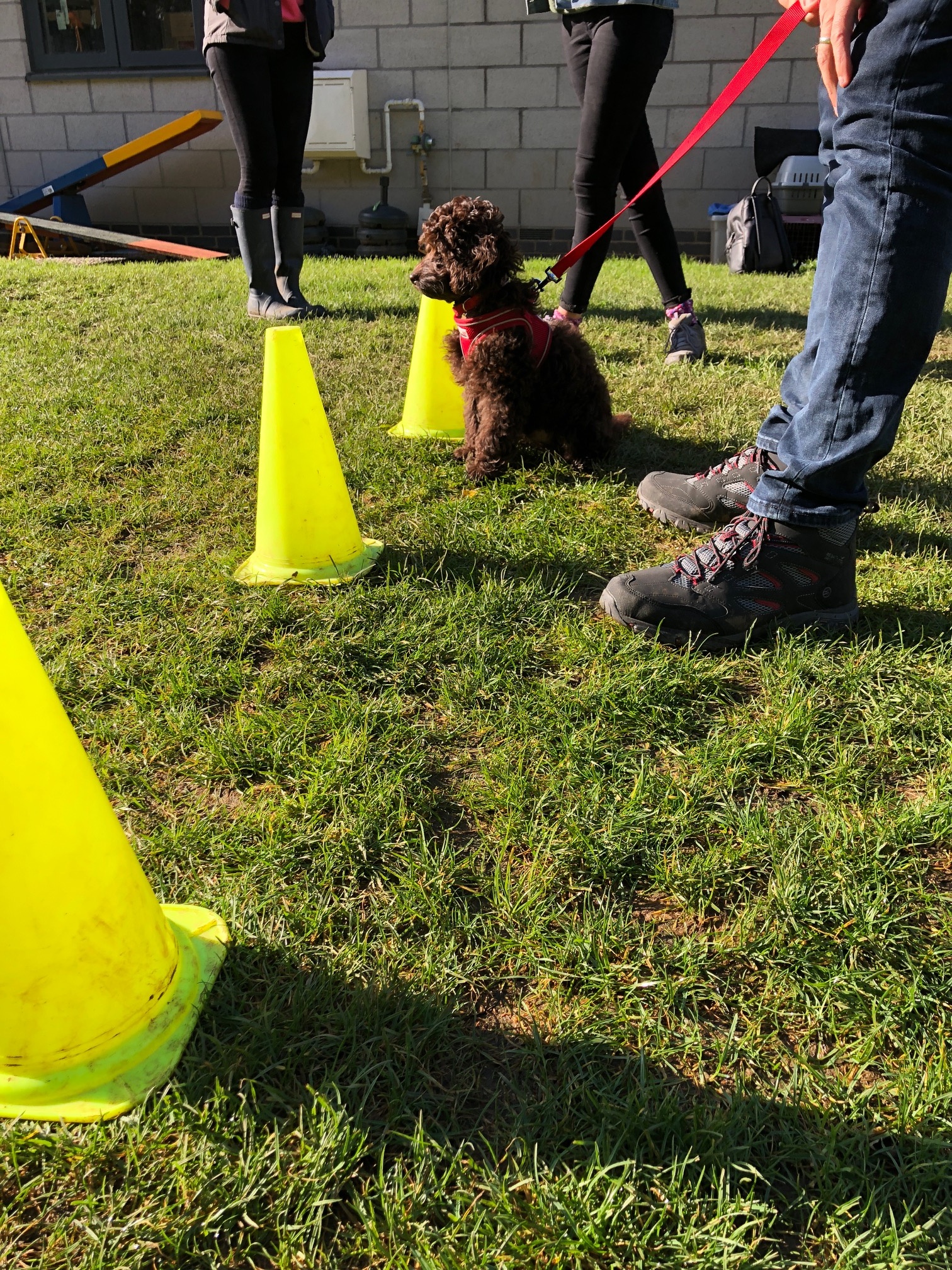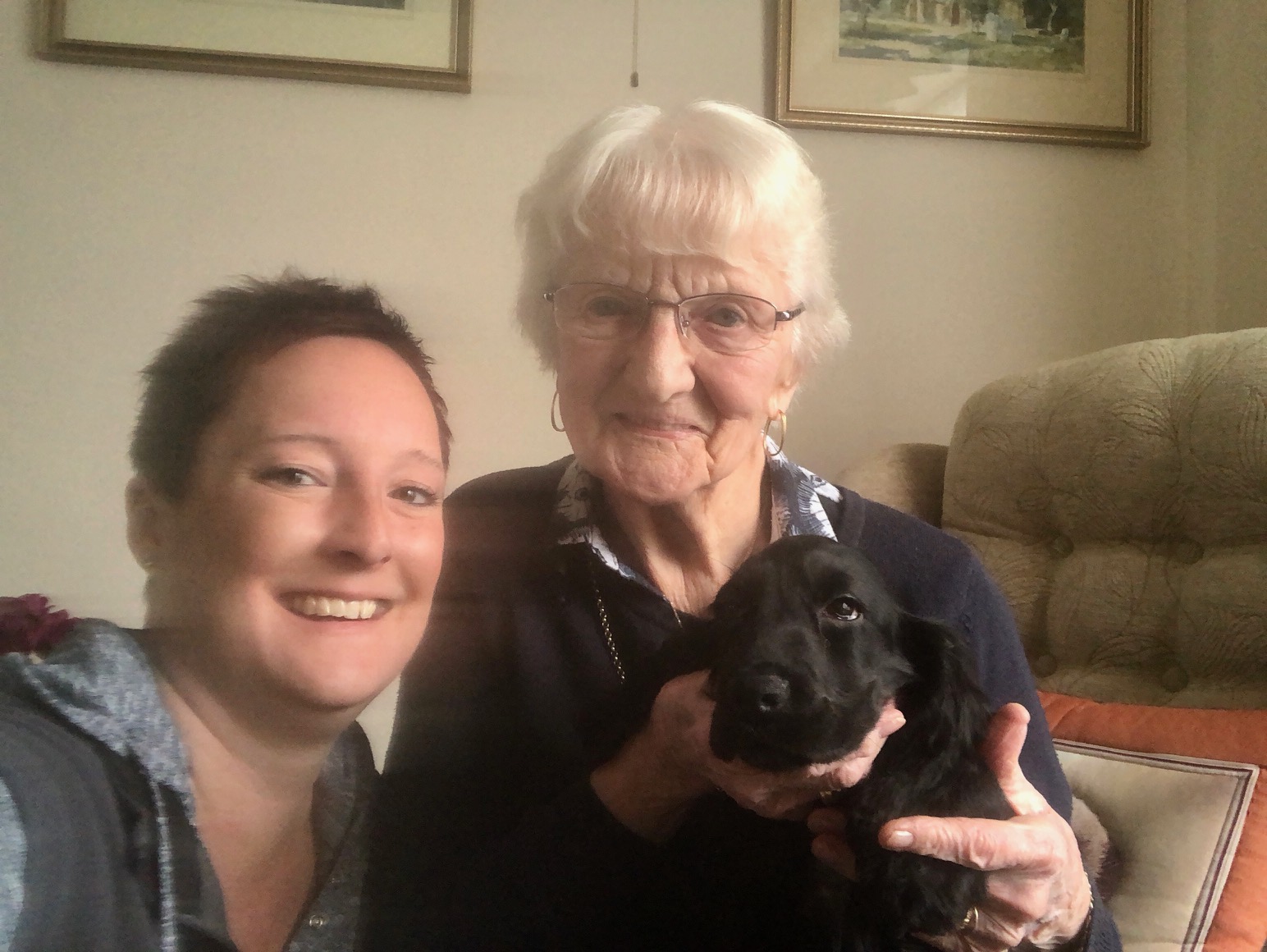Struggling to put aside the time to train your dog? Zoe Willingham shares some tips on how to keep motivated.
I’ve worked as a dog trainer and behaviourist for more years than I care to remember and one thing I’ve noticed is that owners all have different reasons for training their dogs. Some want to address problems with their dog’s behaviour, others want to ensure their pet has good manners.
The owners that are most likely to keep on enriching their dog’s lives with training are the ones that just love engaging with their pets. These are the people that put aside their worries for a few minutes every day just to have fun with their dogs. I’m one of those owners myself and here’s how (and) why I motivate myself to keep on training my dogs.

Varying your dog training techniques
Spending 15 minutes a day repeating the same cues and following the same routine can get a bit boring. It’s easy to see why anyone using this method of dog training struggles to stay motivated. It must get pretty dull for the dog too.
True, dogs learn by association and for their brains to make those associations we need to use a certain amount of repetition. However, too much repetition can bring disadvantages.
I’ve lost count of the number of people who tell me that Fido has a perfect recall in the garden but as soon as he gets to the park he “forgets” his training. Truth is, Fido has learned to associate the recall cue with the garden. He doesn’t realise it applies to the park as well.
Responding to the “sit” cue is great, but can your dog do it when he is 20 paces away from you? In the pub? When somebody comes to the door?
The “three D’s” of dog training are Duration, Distance and Distraction. Those are the things we work on in class and they need to come into home training too. By varying your training techniques you can be confident that your dog will respond to cues anytime, anyplace, anywhere. That’s what we dog trainers refer to as “proofing”.
Make sure dog training is fun for both of you
What does the word “fun” mean to you? It doesn’t only apply to running around like a loon, waving your arms and laughing. In dog training, that can lead to a hyperaroused hound who can’t listen to anything at all. For me, fun means finishing an activity with a smile on my face and a healthy blast of that feelgood factor.
So what makes dog training fun?
Set your dog up for success: Breaking each training goal into bite sized pieces and aiming to make progress with just one or two pieces each day. That way you both get big rewards. Fido has lots of treats, praise and cuddles. You feel like dog trainer of the year.
Stop before you get frustrated: If training isn’t going well, stop. Do something else instead. I don’t mean put the telly on either. Try a little bit of scentwork to stimulate your dog’s brain. Play some games in the garden or go for a rucksack walk. Enjoy each other’s company but make sure there’s some mental stimulation for both of you.
Read my blog “Is your dog bored” for some more ideas about fun activities
Try something new: Bring a new exercise into your training, learn a new trick or introduce a new prop or toy.
How about making an obstacle course for your loose lead walking? You can use different surfaces, some cones for a slalom, a couple of stops, direction changes – maybe even lay some poles on the ground for your dog to step over. All of these things are great for your dog’s coordination and proprioception as well as helping to proof the training.
Make dog training more sociable
Dog training should never be about pacing around your garden repeating cues. That’s boring. Motivate yourself a little more by making it sociable.
Invite a friend to come along on a training walk with you. It’s great to have a training assistant on board for practising things like recall and stay and for playing games like hide n seek.*
*Dog stays with one person while the other goes and hides. Dog is then encouraged to find the missing person. This can be done on a long lead if recall is still a work in progress.
A sociable training walk could well turn into a visit to a dog friendly tea room. Great for humans and a good way to teach your dog to settle in a new environment.

For the ultimate in a sociable dog training experience, join in with a workshop or a class. Trust me, even if your dog doesn’t reveal his inner Einstein, you’ll feel better seeing that no-ones pet is perfect, getting lots of advice from the trainer and meeting like-minded dog owners.
Learn how dogs learn
You’ll find that dog training is even more rewarding when you understand what’s going on in the dog’s head. That’s one of things that most attracted me to the profession. (That and cuddles).
When you can take a scientific approach to it, reward based dog training makes perfect sense. And when you understand why you are doing something, how it works and how you can progress, somehow you feel just that little bit more motivated.
How reward based training works
Be motivated by the benefits of dog training
As a pet owner, you’re probably not thinking of asking your dog to help you herd sheep, find truffles, or win agility prizes at Crufts. That being the case, it’s hard to find the motivation to do more than just the basics. Toilet training, good manners etc.
However, when you’ve met as many dogs in training as I have, it’s plain to see that there are many, many benefits to dog training. Benefits that make it worth spending a very small proportion of your life enriching your dog’s life with training.
Get motivational ideas for your next dog training session
Join a dog training class
Sign up for a one-off workshop
Downloadable dog training ideas
Copyright © 2025 Best Behaviour Dog Training
Registered No. 12954178
Registered address: Poplar Hill, Stowmarket, Suffolk, IP14 2AX
Website design by Upshot Media Ltd